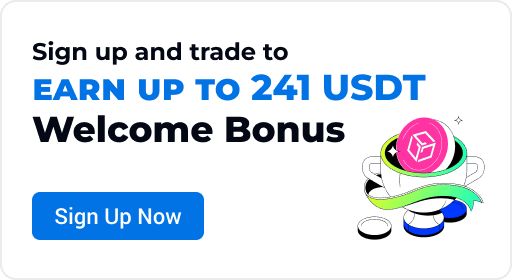What is BID
Learned by 52 usersPublished on 2024.04.01 Last updated on 2024.10.15
Tokens
1. What is a bid?
The introduction of Bid (buying price) in Token trading
In Token trading, a Bid (buying price) refers to the highest price that an investor or trader is willing to pay for a certain Token. It is the price at which a trader can open a long position (i.e., buy). Correspondingly, the Ask (selling price) is the price at which a trader can open a short position (i.e., sell).
- Role of Bid: Bid is the offer made by a trader to purchase Tokens in the market. It reflects the market demand level for that Token.
- Relationship between Bid and Ask: Bid is usually lower than Ask, and the difference between these two prices is referred to as the spread. The spread is part of the transaction cost, typically charged by exchanges or brokers.
- Application of Bid in trading: When using Contracts for Difference (CFD) for Token trading, Bid and Ask prices are very important. Traders need to understand these prices to determine the costs and potential profits of a trade.
In summary, Bid is a key concept in Token trading that helps traders understand market demand and make informed trading decisions.
2. Who founded Bid?
According to the information provided, BID (Bidcoin) does not specify its founder. Relevant information mainly comes from Token data websites and platforms, but these sources do not provide specific information about the founders of BID.
If you are referring to Bitcoin, according to the information, Bitcoin was founded by Satoshi Nakamoto, with its white paper published on October 31, 2008, and the network officially launched on January 3, 2009.
3. Which venture capital firms invested in Bid?
According to the information provided, the following venture capital firms or institutions invested in Token-related projects:
Coinbase Ventures: Coinbase's investment arm, primarily investing in Token-related startups, including:
TaxBit: Token tax automation software provider (Series A $100 million)
Amber Group: Token trading service startup based in Hong Kong (Series B $100 million)
FTX: Token exchange (Series B $900 million)
CoinSwitch Kuber: Indian Token exchange (Series C $260 million)
ConsenSys: Ethereum blockchain ecosystem development ($200 million)
SoftBank Group: Participated in multiple Token-related investments in 2021, including:
FTX: Token exchange (Series B $900 million)
Revolut: UK digital bank (Series E $800 million)
Chime: American digital bank (Series G $750 million)
Klarna: Swedish e-commerce payment solutions ($639 million)
DriveWealth: Fractional investing trading platform (Series D $450 million)
Salesforce: Participated in Wiz's Series B $120 million and Series C $250 million investments, Wiz is an Israeli cloud security startup.
Other Investors:
Wangxiang Blockchain Lab: Early investor in Ethereum, providing $500,000 in cash support.
eToro: Although not an investment firm, it is a social trading brokerage providing Token trading services and has raised $100 million in investments.
4. How does Bid work?
The operation of Bid (buying price) in Token trading
In Token trading, especially when using Contracts for Difference (CFD), Bid (buying price) refers to the price at which a trader or investor can open a long position. It is the price at which a trader can purchase Tokens, usually slightly higher than the current market price.
Key Points:
- Buying Price (Bid): This is the price at which a trader can open a long position, usually slightly higher than the current market price.
- Selling Price (Ask): This is the price at which a trader can open a short position, usually slightly lower than the current market price.
- Spread: This is the difference between the buying price and the selling price, typically covering the costs of opening Contracts for Difference in Tokens.
Trading Process:
- The trader views the current buying price (Bid) and selling price (Ask) through the broker platform.
- The trader decides whether to open a long position (buy) or short position (sell).
- If opening a long position, the trader purchases Tokens at the buying price (Bid).
- If opening a short position, the trader sells Tokens at the selling price (Ask).
Important Note:
- When trading Tokens using Contracts for Difference, the trader does not actually own the Tokens, but rather profits from price changes.
- Brokers play an important role in Contracts for Difference trading by executing trades and managing client funds.
By understanding the operation of buying price (Bid) and selling price (Ask), traders can better grasp the fundamental principles of Token Contracts for Difference trading.



